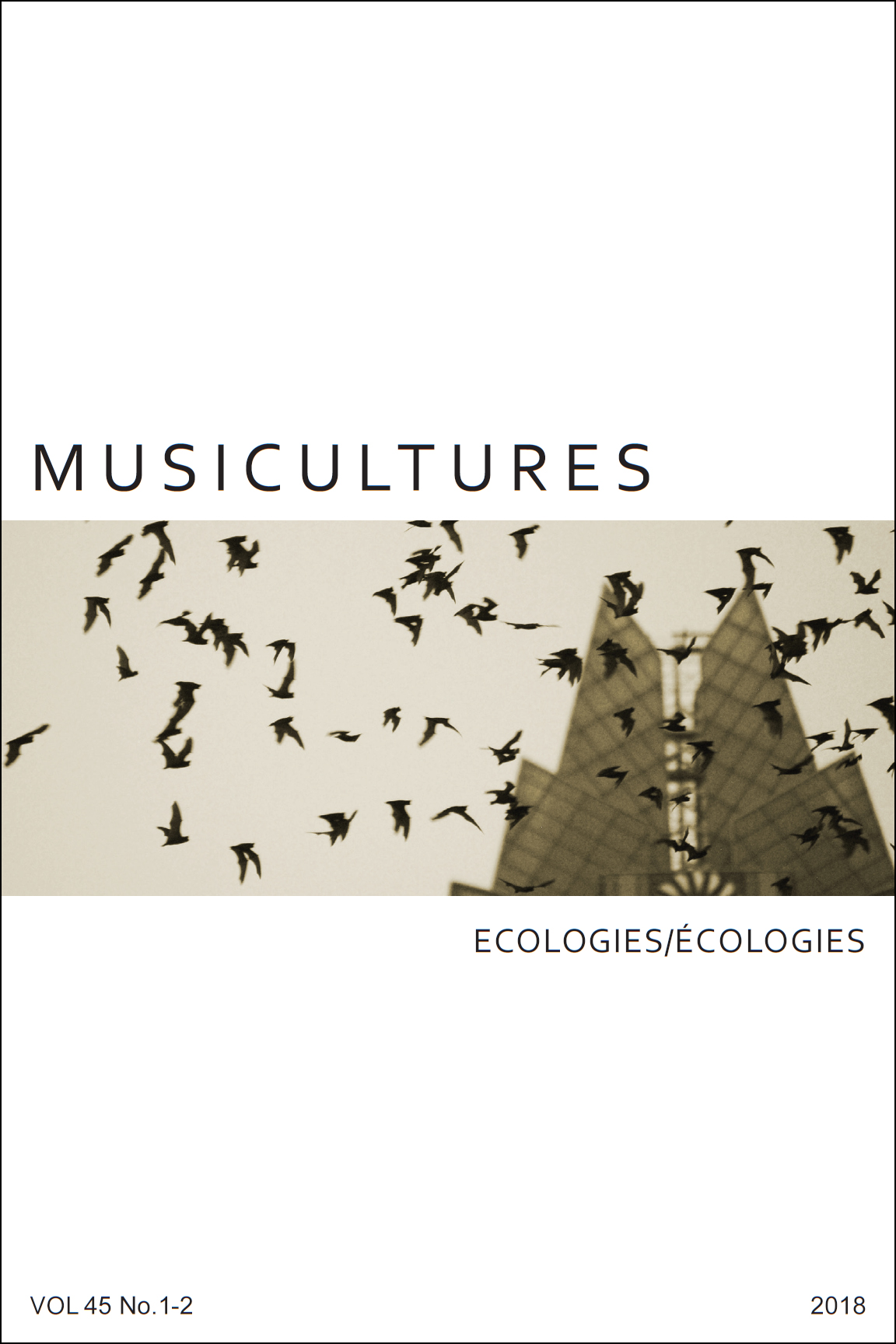Résumé
Dans les années 1990, Bruno Latour contestait l'idée selon laquelle les sociétés modernes se définissent par leur séparation du monde naturel. Dans cet article, je présente une étude de cas à Austin (Texas), en examinant la façon dont les relations entre êtres humains et chauves-souris ont brouillé les lignes de démarcation entre le naturel et le culturel au cours d'un processus que j'appelle « devenir-avec » (becoming with) à la suite de Donna Haraway. Je commence par exposer les stéréotypes négatifs au sujet des chauves-souris, issus tant de l'histoire coloniale que des récits anti-immigrants. J'analyse ensuite la transformation progressive d'Austin en « Bat City » (la ville des chauves-souris) au cours d'un processus qui a radicalement revu et corrigé ces idées reçues colonialistes. Enfin, je propose une étude de cas musicale qui illustre la relation d'Austin avec sa colonie locale de chauves-souris : le groupe horror-surf des Bat City Surfers, dont les membres se décrivent eux-mêmes comme le produit de l'évolution des chauves-souris, leurs descendants.Ébauche de règlement relatif aux droits des auteurs d’articles publiés dans MUSICultures
- L’auteur conserve ses droits sur son travail.
- L’auteur cède au propriétaire de la revue (The Canadian Society for Traditional Music / La Société canadienne pour les traditions musicales) l’exclusivité de la publication de son œuvre.
- L’auteur peut publier une version pré- ou post- publication de son travail (voir les définitions ci-dessous) sur un site Internet personnel jusqu’à douze mois après sa publication dans MUSICultures. Au bout de douze mois, la version pré-publication doit être remplacée par la version publiée.
- L’auteur a la possibilité de déposer le PDF de son travail publié sur un répertoire en ligne à but non lucratif douze mois après que son travail ait été publié dans MUSICultures, ou par la suite à n’importe quel moment à sa convenance.
- Un tel dépôt doit comporter un lien renvoyant à son travail sur le site Internet de MUSICultures, soit https://journals.lib.unb.ca/index.php/MC/article/view/19996
Une pré-publication est un travail en cours – une contribution non encore acceptée, voire encore non soumise, à MUSICultures.
Une post-publication est la version d’une contribution après évaluation par les pairs et acceptation par MUSICultures, les corrections y ayant été apportées.
La version publiée est le fichier PDF de la contribution telle qu’elle apparaît dans MUSICultures.
Veuillez noter que academia.edu et ResearchGate.com sont tous deux des répertoires à but lucratif ; les auteurs ne peuvent y déposer les versions PDF publiées de leur travail avant la fin de la période d’interdiction imposée par la revue.
Pour les autorisations de réimprimer ou de traduire des textes de MUSICultures, veuillez contacter Heather Sparling, rédactrice en chef de MUSICultures (heather_sparling@cbu.ca).

